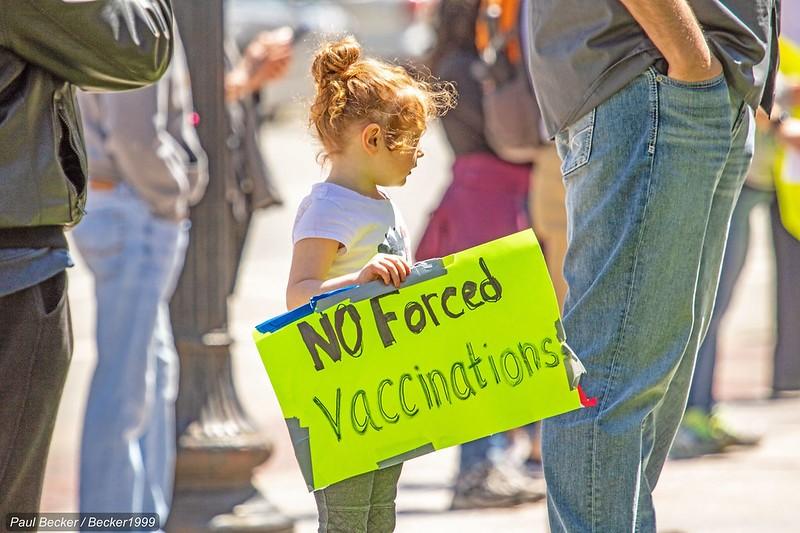Despite public wariness of a potential COVID-19 vaccine and AstraZeneca's pause of a phase 3 trial of its vaccine candidate yesterday, the US government continues to roll out preparations for a vaccine.
Yesterday, the Department of Health and Human Services issued guidance under the Public Readiness and Emergency Preparedness Act to expand access to safe and effective COVID-19 vaccines when they are made available. The guidance will allow state-licensed pharmacists and pharmacy interns to administer COVID-19 vaccines to anyone aged 3 or older.
"This action builds upon our Administration's progress toward delivering a safe, effective, and widely available vaccine by 2021," said Assistant Secretary for Health Admiral Brett Giroir, MD in a press release. "Allowing pharmacists to order and administer COVID-19 vaccines will greatly expand convenient access for the American people."
Also yesterday, Centers for Disease Control and Prevention (CDC) Director Robert Redfield, MD, said during a White House briefing that the federal government will coordinate with state and local governments through the public health infrastructure to distribute a future vaccine.
Five pilot states and cities—California, Florida, Minnesota, North Dakota, and Philadelphia—have already developed microplans to develop best practices for mass vaccine distribution.
All of the preparations are part of Operation Warp Speed, the White House's initiative to develop and deliver a safe and effective COVID-19 vaccine to the public by the winter of 2020-21.
Americans worry vaccine will be political tool
Yesterday during a Senate hearing, National Institutes of Health Director Francis Collins, MD, said that AstraZeneca's suspension of its COVID-19 vaccine trial to investigate the unexplained development of myelitis in a study participant shows there will be no compromises on safety in the race to develop a vaccine.
"This ought to be reassuring," Collins said. "When we say we are going to focus first on safety and make no compromises, here is Exhibit A of how that is happening in practice."
Collins explained that the United States is investing in six vaccine candidates, in the hope one will pan out by the end of the year, but he said it would be very unlikely to have a clear candidate by Nov 3, Election Day.
According to a new Kaiser Family Foundations survey, 62% of Americans worry political pressure from the Trump administration will lead the Food and Drug Administration (FDA) to rush to approve a COVID-19 vaccine without making sure it is safe and effective. Roughly 4 in 10 say the FDA (39%) and the CDC (42%) are paying too much attention to politics when it comes to reviewing and approving COVID-19 treatments or issuing guidelines.
The 62% breaks down politically to 85% of Democrats, 61% of Independents, and 35% of Republicans. Eighty-one percent of all Americans say they do not believe a vaccine will be available before Election Day.
The erosion in public trust surrounding a vaccine comes as a new book, Rage, by Bob Woodward, quotes President Donald Trump saying in March he knew COVID-19 was more deadly than the flu, and was likely spread through the air.
Trump told the Watergate journalist, in more than a dozen taped interviews, that he wanted to avoid panic during the early days of the pandemic, so he downplayed the risk, saying repeatedly the virus would one day disappear.
On Feb 7 Trump told Woodward, "It goes through the air, That's always tougher than the touch. You don't have to touch things. Right? But the air, you just breathe the air and that's how it's passed. And so that's a very tricky one. That's a very delicate one. It's also more deadly than even your strenuous flus."
Yesterday during a press briefing Trump defended the comments, saying he was trying to project calm to the American people.
Senate blocks stimulus bill
Today all Senate Democrats and Rand Paul (R-Ky.) voted against a new stimulus bill, which fell short of the 60 votes needed to pass. The bill, authorized by Senate Majority Leader Mitch McConnell (R-Ky), would have offered an extra $300 in weekly unemployment benefits to those who have lost a job due to the pandemic.
Democrats said the bill did not go far enough in offering relief to US families, and stuck with their proposed $2.2 trillion bill, which contained more than double the funding of the Republican version.
After the vote, Treasury Secretary Steven Mnuchin said he doubted a relief bill would be passed before the presidential election.
According to Reuters, a seasonally adjusted 884,000 Americans filed for unemployment benefits for the week ending on Sep 5. A total of 22.2 million jobs have been lost since the pandemic began, with about 10.6 million recovered.
And unemployment is falling most heavily on US racial minorities. More than half of Latino and nearly half of black survey respondents reported experiencing an economic challenge because of the pandemic, compared with 21% of white respondents, according to new survey results from the Commonwealth Fund. Both black and Latino respondents reported mental health concerns at a rate 10 points higher than whites.
Airports screening, new cases
- The CDC will end enhanced health screening of foreign travelers at US airports and end requirements that travelers coming from the targeted countries arrive at 15 designated US airports.
- Yesterday the country reported 34,256 new COVID-19 cases and 1,206 new deaths, according to the Johns Hopkins COVID-19 tracker. The United States now has 6,387,236 confirmed cases and 191,536 fatalities.























